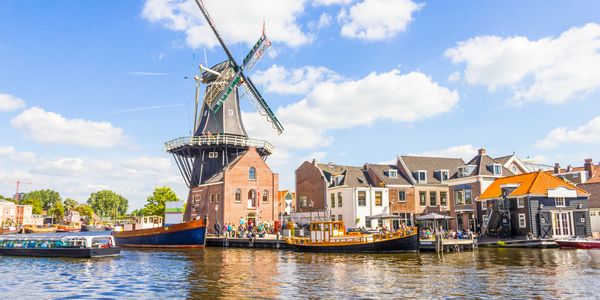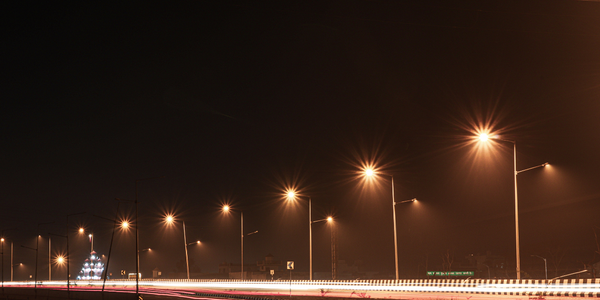Spotlight: Link Transit
Customer Company Size
Mid-size Company
Region
- America
Country
- United States
Product
- Ecolane DRT Scheduling and Dispatching Software
- Ecolane Self Service Web Booking Portal
- Ecolane Touch Screen MDT software for Android Tablets
- Advanced Ecolane Reporting System
Tech Stack
- Android Tablets
- Mobile Data Terminals (MDT)
Implementation Scale
- Enterprise-wide Deployment
Impact Metrics
- Customer Satisfaction
- Productivity Improvements
- Digital Expertise
Technology Category
- Functional Applications - Fleet Management Systems (FMS)
- Functional Applications - Remote Monitoring & Control Systems
Applicable Industries
- Transportation
- Cities & Municipalities
Applicable Functions
- Logistics & Transportation
- Business Operation
Use Cases
- Fleet Management
- Predictive Maintenance
- Remote Asset Management
Services
- System Integration
- Software Design & Engineering Services
About The Customer
Link Transit provides year-round service for 17 communities in Chelan and Douglas Counties and one seasonal route to Mission Ridge Ski Area. All fixed route buses are fully accessible with wheelchair lifts or ramps. Paratransit service for ADA eligible individuals is provided by LinkPlus with up to 16 paratransit vehicles operating on next-day reservation requests. Link Transit considers everyone that comes aboard their buses to be their guest and strives to assure everyone a dependable, safe, efficient, and courteous ride.
The Challenge
In March 2012, Link Transit released an RFP for Paratransit Scheduling and Automated Software/Hardware. Link Transit was using outdated software and dedicated mobile data terminals in their vehicles. Both were no longer supported by the previous software provider. They did not want to move to the previous provider’s primary product so they decided to look for another solution. This led them to look for a comprehensive solution that would continue to support mobile data communication, provide solid global positioning information, and would allow them to operate feeder service in outlying communities. Link Transit also had the goal of providing better general public service to the less densely populated communities and knew that real-time scheduling would be crucial to meeting this goal.
The Solution
The contract was awarded to Ecolane because of its ease of use, better mapping and reporting, same-day dispatching, vehicle tracking, and tablet MDT software. The solution included Ecolane DRT Scheduling and Dispatching Software (hosted by Ecolane), Advanced Ecolane Reporting System along with Ad-hoc reporting tool, Ecolane Self Service Web Booking Portal, and Ecolane Touch Screen MDT software for Android Tablets. The project was completed on budget and on time.
Operational Impact
Quantitative Benefit

Case Study missing?
Start adding your own!
Register with your work email and create a new case study profile for your business.
Related Case Studies.

Case Study
Turning A Stadium Into A Smart Building
Honeywell created what it called the “intelligent system” for the National Stadium in Beijing, China, turning the venue for the opening and closing events at the 2008 Summer Olympics into a “smart building.” Designed by highly controversial artist Ai Weiwei, the “Bird’s Nest” remains one of the most impressive feats of stadium architecture in the world. The 250,000 square meter structure housed more than 100,000 athletes and spectators at a time. To accommodate such capacity, China turned to Honeywell’s EBI Integrated Building Management System to create an integrated “intelligent system” for improved building security, safety and energy efficiency.
.png)
Case Study
Smart Street Light Network (Copenhagen)
Key stakeholders are taking a comprehensive approach to rethinking smart city innovation. City leaders have collaborated through partnerships involving government, research institutions and solution providers. The Copenhagen Solutions Lab is one of the leading organizations at the forefront of this movement. By bringing together manufacturers with municipal buyers, the Copenhagen Solutions Lab has catalyzed the development and deployment of next-generation smart city innovations. Copenhagen is leveraging this unique approach to accelerate the implementation of smart city solutions. One of the primary focus areas is LED street lighting.

Case Study
Airport SCADA Systems Improve Service Levels
Modern airports are one of the busiest environments on Earth and rely on process automation equipment to ensure service operators achieve their KPIs. Increasingly airport SCADA systems are being used to control all aspects of the operation and associated facilities. This is because unplanned system downtime can cost dearly, both in terms of reduced revenues and the associated loss of customer satisfaction due to inevitable travel inconvenience and disruption.

Case Study
IoT-based Fleet Intelligence Innovation
Speed to market is precious for DRVR, a rapidly growing start-up company. With a business model dependent on reliable mobile data, managers were spending their lives trying to negotiate data roaming deals with mobile network operators in different countries. And, even then, service quality was a constant concern.

Case Study
Buoy Status Monitoring with LoRa
The Netherlands are well-known for their inland waterways, canals, sluices and of course port activities. The Dutch Ministry of Infrastructure indicates that there are thousands of buoys and fixed items in and near water environments that would profit from IoT monitoring. One of the problems with buoys for example, is that they get hit by ships and the anchor cable breaks. Without connectivity, it takes quite some time to find out that something has happened with that buoy. Not to mention the costs of renting a boat to go to the buoy to fix it. Another important issue, is that there is no real-time monitoring of the buoys at this moment. Only by physically visiting the object on the water, one gains insight in its status.



